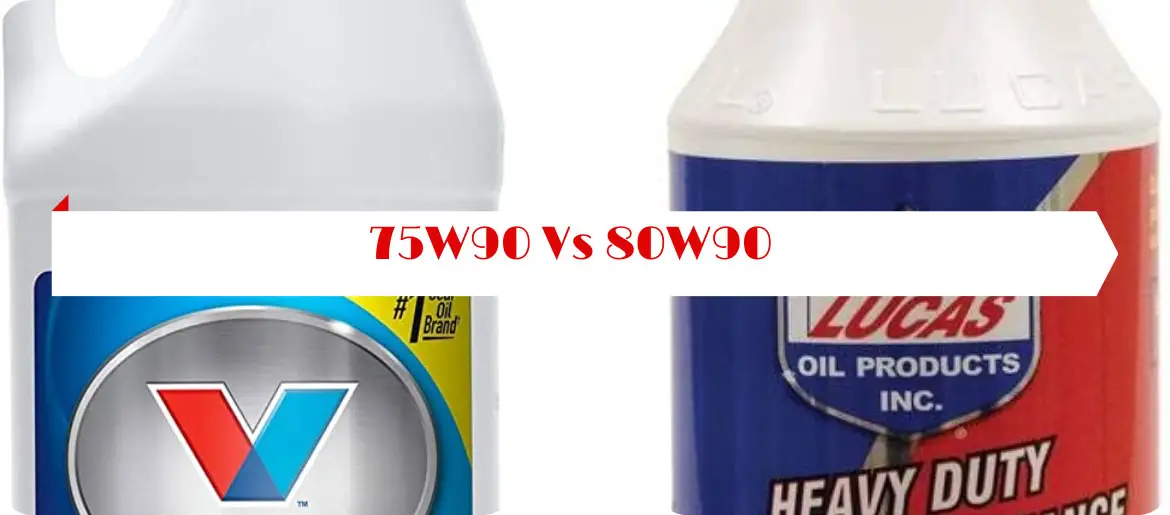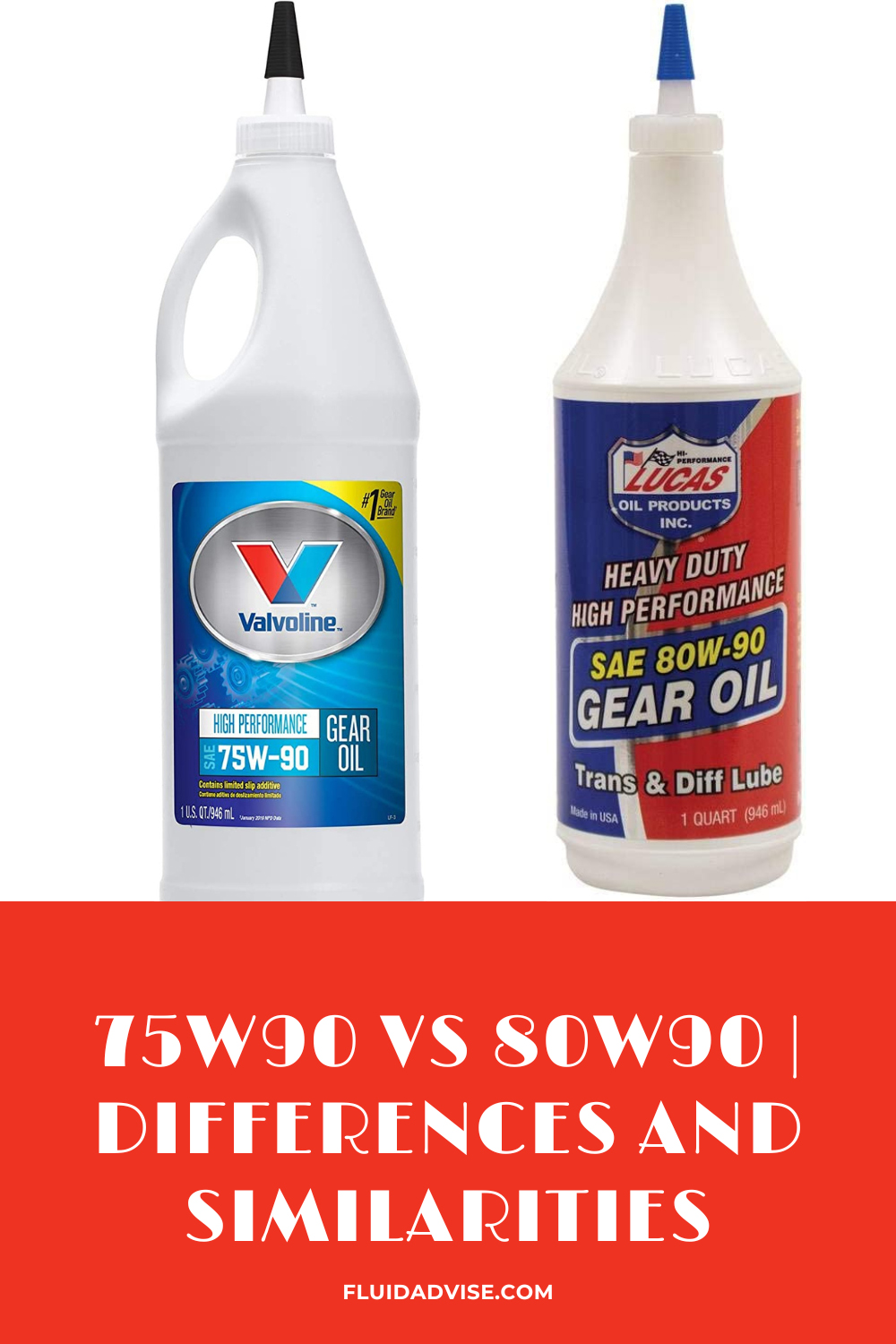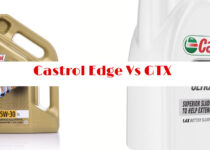75W90 Vs 80W90 Gear Oil | Differences and Similarities
Reviewed By: Joses Peter
75W90 Vs 80W90: what are the differences and similarities? Many people may not know the answer to this question, so let’s break it down. 75W90 is a gear oil that has a viscosity of 75 cSt at 100 degrees Celsius. 80W90 is a gear oil that has a viscosity of 80 cSt at 100 degrees Celsius.
So what does this mean? In simple terms, 75W90 is thinner than 80W90. This means that it will flow more easily at lower temperatures, but it also means that it won’t provide as much protection against wear and tear.
What Is 75W90 Oil?
75W90 oil is a type of gear oil that is used in many different types of vehicles. It is made up of 75% base oil and 25% additives. The base oil helps to keep the gears lubricated while the additives help to protect them from wear and tear. This oil is also known as “high mileage” oil because it is designed to last longer than other types of oils.
Key Features and Benefits of 75W90 Oil
- Flows easily at lower temperatures: This oil is thinner than other types of oils, which means it will flow more easily at lower temperatures. This can be beneficial in cold weather conditions.
- Protects against wear and tear: The 75W90 oil provides protection against wear and tear, making it ideal for high mileage vehicles.
- Lasts longer: This oil is designed to last longer than other types of oils, making it a good choice for those who want to extend the life of their vehicle.
What Is 80W90 Oil?
80W90 oil is also a type of gear oil that is used in many different types of vehicles. It is made up of 80% base oil and 20% additives. Like 75W90 oil, the base oil helps to keep the gears lubricated while the additives help to protect them from wear and tear. However, 80W90 oil is designed for use in high-performance vehicles. It is also known as “synthetic” oil because it contains more synthetic materials than other oils.
Key Features and Benefits of 80W90 Oil
- Flows easily at higher temperatures: This oil is thicker than 75W90 oil, which means it will flow more easily at higher temperatures. This can be beneficial in hot weather conditions.
- Protects against wear and tear: The 80W90 oil provides protection against wear and tear, making it ideal for high-performance vehicles.
- Lasts longer: This oil is also designed to last longer than other types of oils, making it a good choice for those who want to extend the life of their vehicle.
You might be interested to check Is SAE 30 The Same As 10W30?
What Are The Differences Between 75W90 And 80W90 Oil?
The main difference between 75W90 and 80W90 oil is the viscosity. 75W90 oil has a viscosity of 75 cSt at 100 degrees Celsius while 80W90 oil has a viscosity of 80 cSt at 100 degrees Celsius. This means that 75W90 oil is thinner than 80W90 oil and will flow more easily at lower temperatures.
However, 75W90 oil will not provide as much protection against wear and tear as 80W90 oil. Another difference between these two oils is that 75W90 oil is known as “high mileage” oil while 80W90 oil is known as “synthetic” oil. Finally, 75W90 oil is typically used in vehicles that are driven in moderate to cold climates while 80W90 oil is typically used in high-performance vehicles that are driven in hot climates.

What Are The Similarities Between 75W90 And 80W90 Oil?
Both 75W90 and 80W90 oils are types of gear oil that are used in many different types of vehicles. They are both made up of base oil and additives. The base oil helps to keep the gears lubricated while the additives help to protect them from wear and tear.
Additionally, both of these oils are available in synthetic and high mileage formulas. However, the main similarity between these two oils is that they have different viscosities. 75W90 oil has a viscosity of 75 cSt at 100 degrees Celsius while 80W90 oil has a viscosity of 80 cSt at 100 degrees Celsius. This means that they have different thicknesses and will flow differently at different temperatures.
Can I use 80w90 instead of 75w90?
You can use 80w90 instead of 75w90, but it may not work as well. The higher the number, the thicker the oil, so 80w90 is thicker than 75w90. This means that it may not flow as well and could cause problems.
If you’re not sure which oil to use, it’s always best to consult your owner’s manual or a qualified mechanic.
Can you mix 75w90 and 80w90?
You can mix 75w90 and 80w90 gear oils, but the proportions have to be accurate. For example, if you add 1 quart of 75w90, you would need to add 1.05 quarts of 80w90 to maintain the 80w90 viscosity. It’s always best to consult your owner’s manual or a professional mechanic to get the correct proportions for your vehicle.
Is 75w90 better than 80w90?
The debate about which type of gear oil is better has been around for a long time. Some say that 75w90 is better because it has a higher viscosity rating, while others say that 80w90 is better because it provides more protection. So, which one is actually better?
The answer may depend on who you ask, but we think that 80w90 is the better option.
Here’s why:
1. 80w90 has a higher viscosity rating at high temperatures. This means that it will maintain its lubricity better in hot conditions.
2. 80w90 is also better for gears that are under high loads. The higher viscosity means that it can better withstand the force without breaking down.
3. 80w90 is also less likely to leak than 75w90. The higher viscosity means that it will seal better and not allow as much oil to escape.
4. Finally, 80w90 is simply more versatile than 75w90. It can be used in a wider variety of applications and will provide better protection in most cases.
So, if you’re looking for the best gear oil, we would recommend 80w90. It
Final Thoughts on 75W90 Vs 80W90
75W90 and 80W90 oils are both types of gear oil that have different viscosities. 75W90 oil is thinner than 80W90 oil and will flow more easily at lower temperatures. However, 75W90 oil will not provide as much protection against wear and tear as 80W90 oil.
Both of these oils are available in synthetic and high mileage formulas. However, the main similarity between these two oils is that they have different viscosities.







